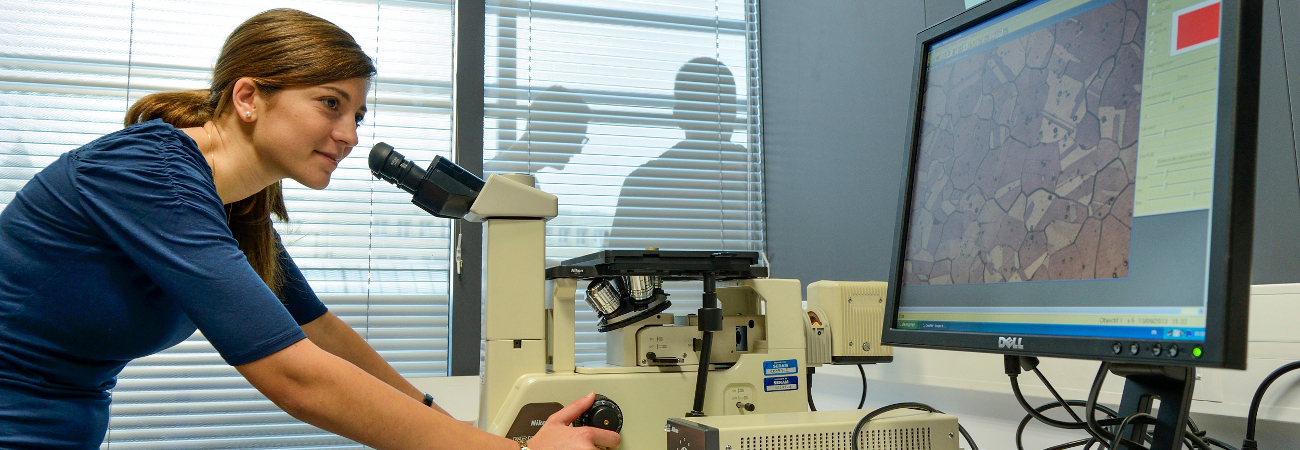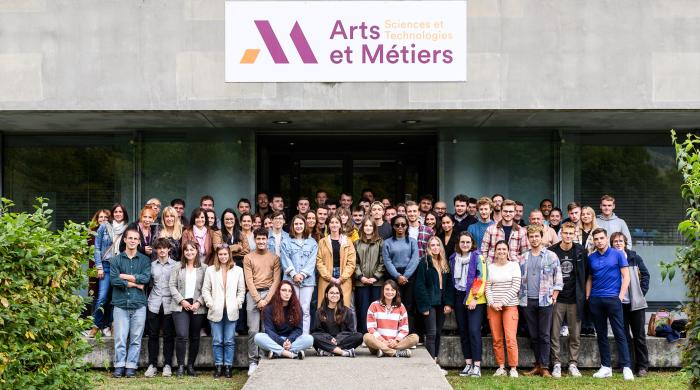
Since its founding in 1780, Arts et Métiers has been committed to meeting constantly evolving industrial challenges and societal issues. What is its primary task? To train specialist engineers in the field of sustainable technology: engineers capable not only of designing environmentally friendly products and systems, but also of overseeing an industrial organisation by controlling the risks and costs.
Close to the industrial environment
These are the skills expected by today's recruiters. With eight campuses and three institutes across France, Arts et Métiers has a uniquely close relationship with industry. This unique positioning aligns the content of our programmes with the needs of businesses at local level. This ambition is supported by international openness: the network of 170 foreign partner schools and universities ensures that a wide variety of courses can be studied abroad.
A full range of initial and continuous training
A leading engineering school, Arts et Métiers is permanently enriching its range of initial and continuous training. It now offers not only General Engineering and Specialist Engineering curricula (block-release training) and a bachelor's degree in technology, but also 27 research masters, 16 Mastères Spécialisés® programmes as well as 1 MBA and doctoral studies. The entire spectrum of technology training in higher education, with studies from Bachelor to PhD, is therefore covered to meet all needs and expectations.
Five strategic areas of research
A disseminator of knowledge and innovation, Arts et Métiers also contributes to their production thanks to 14 research laboratories and one Doctoral School. The challenge? To meet the expectations of French and international industry and to prepare for the future. The scientific teams are engaged in five major strategic priorities in as many economic sectors: transport, energy, health, housing and production. Research is undertaken in 20 different fields; such as digital engineering, biomechanical design, thermal energy and collaborative robotics. Researchers and students can work on the entire life cycle of a product: from design to production, all the way to recycling.
Common tools to promote collaborative projects
The research and training benefit from the close relationship between the school and its industrial partners, who share the same goals: initiating collaborative projects and fostering the emergence of new technologies. To strengthen this dynamic, the campuses and institutes have common tools: national alliances with other research centres and industrial partners; the Carnot ARTS Institute, which brings together 20 laboratories – those of Arts et Métiers and academic institutions; and development structures, such as the AMValor subsidiary, as well as incubation and entrepreneurship programmes.
A public institution at the heart of networks of excellence
Arts et Métiers has the status of a public institution with a scientific, cultural and professional vocation (EPCSCP), and as such is under the supervision of the Ministry of Higher Education and Research. The school plays a full role in the networks that promote training and research: it is a founder member of PRES (Centre of Research and Higher Education) ParisTech and the HESAM University community.
Key figures
- More than 100,000 engineers trained since 1780
- 6,156 students
- 1,100 teaching, technical and administrative staff
- 14 laboratories and research teams
- 10 engineering programmes
- €15 million in revenue generated by contracts with industry



